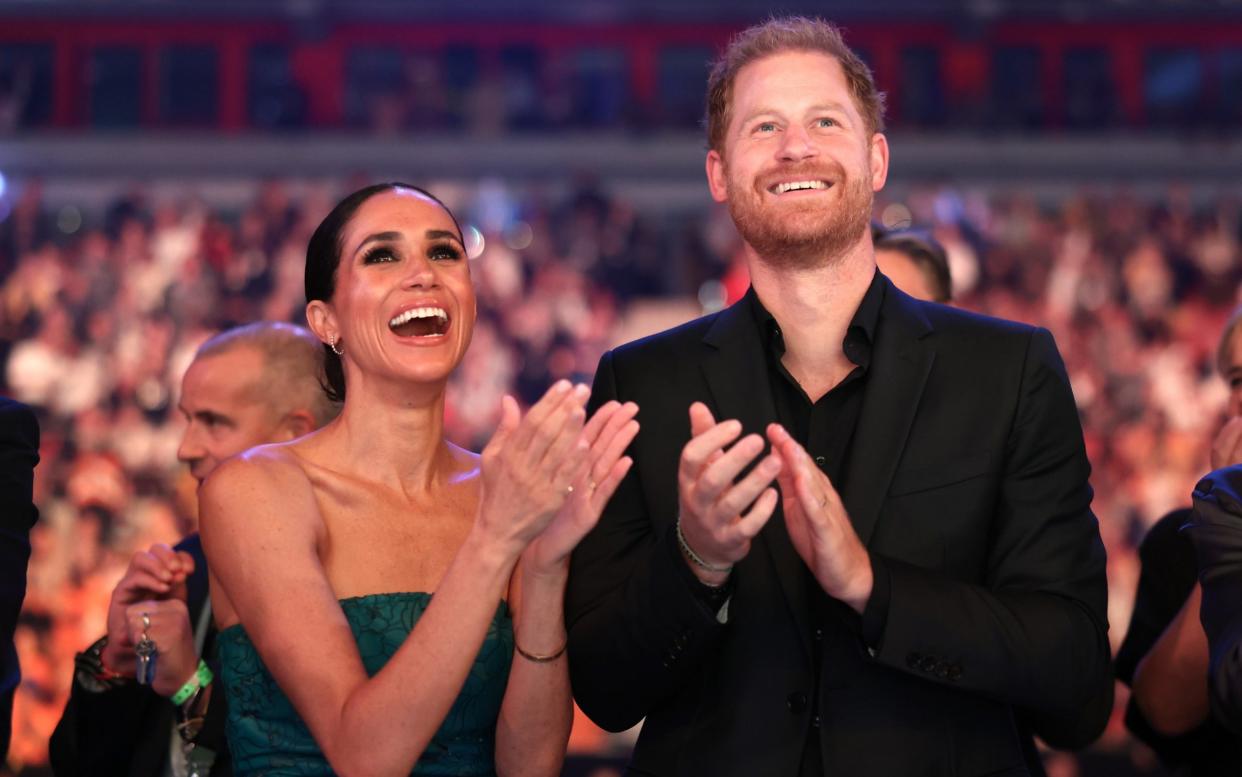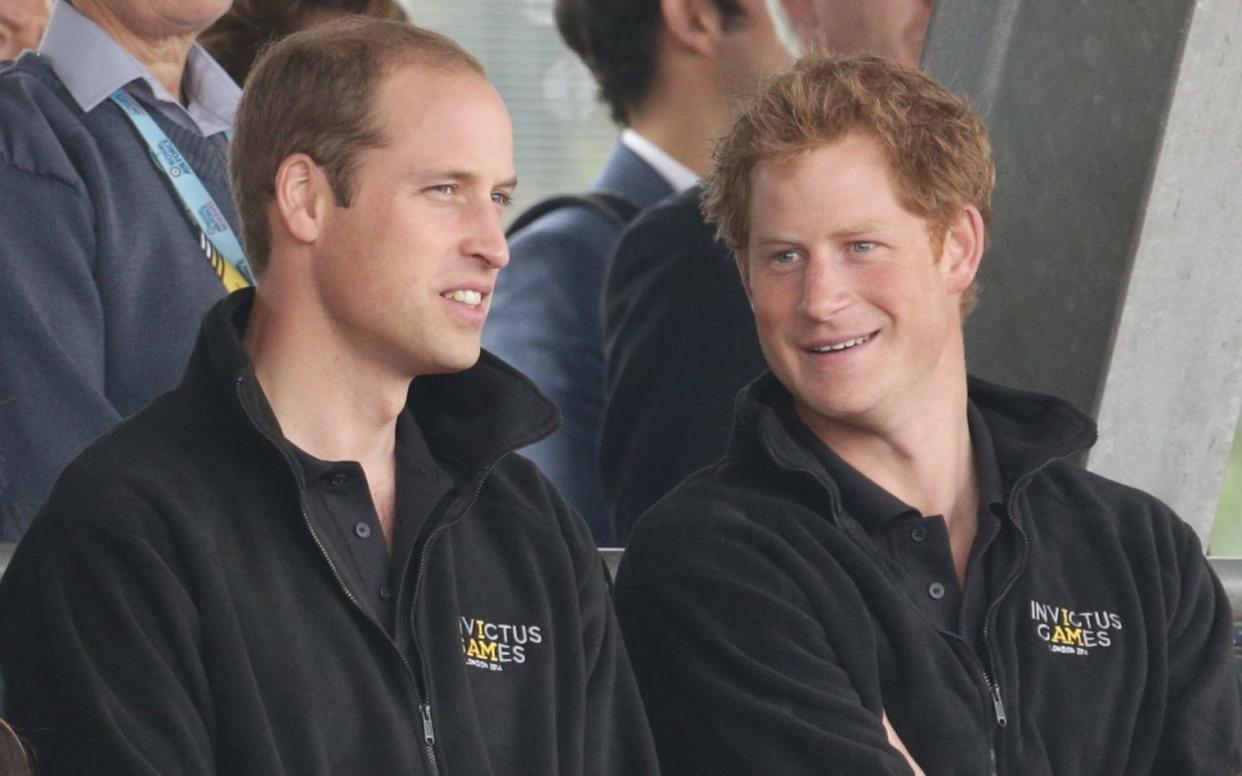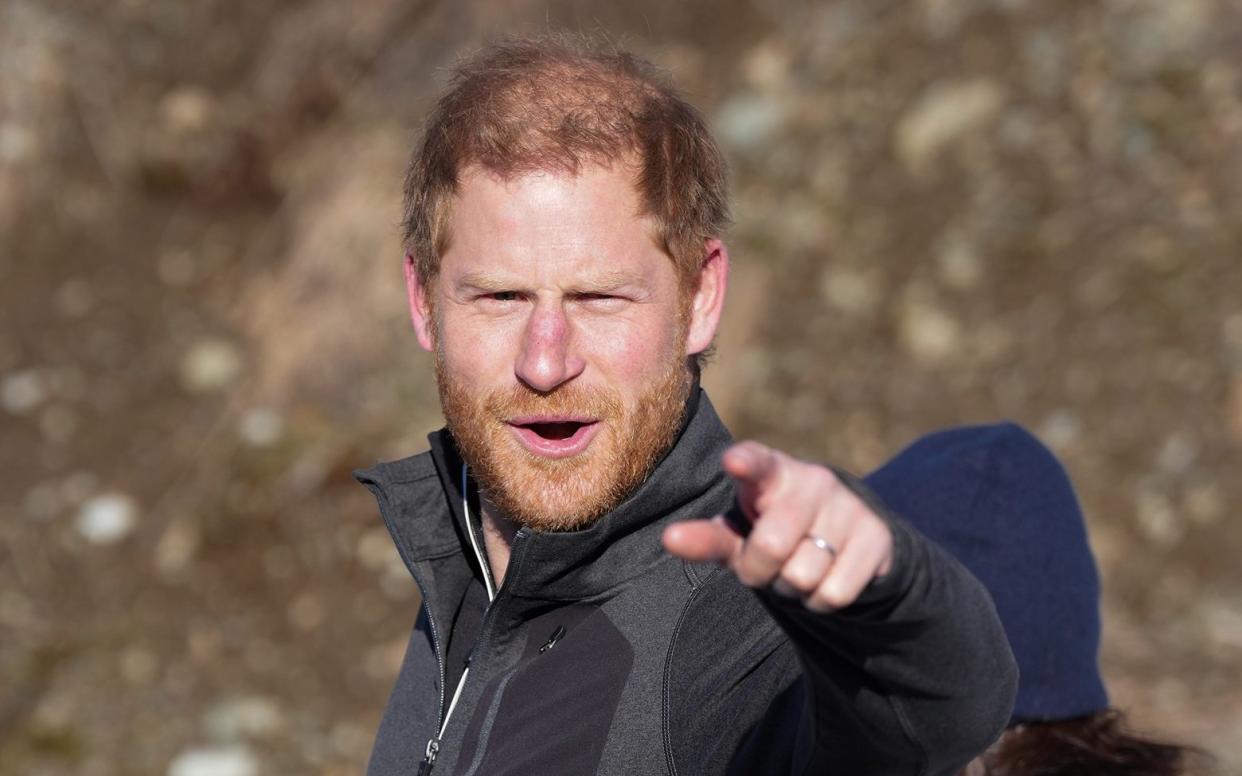How Britain’s bid for Invictus Games puts the Royal family in a difficult spot

The prospect of Prince Harry’s Invictus Games returning to the UK for the first time since its inception raises some tantalising questions.
Chief among them is whether it would draw both the Duke and Duchess of Sussex back to their former home, potentially with their two children.
Then, crucially, would senior members of the Royal family support the event, as they did in 2014, when the then Prince Charles, the Duchess of Cornwall and Prince William all joined Prince Harry for the opening ceremony.
Things were different then. The Duke was a fully paid-up, full-time working member of the team and any family tensions were dealt with behind closed doors.
Invictus has since grown into a successful global event involving 22 countries and more than 500 athletes.
At last year’s Games in Düsseldorf, Germany, a 59-strong Team UK won 69 medals.
Despite its growing stature on the world stage, the Royal family has not commented publicly on the event for a number of years, a fact not lost on Team Sussex.
For the Duke and Duchess, the prospect of the Games making a triumphant return to the UK will undoubtedly prove conflicting.
The annual event has become one of their most high profile joint outings on the world stage, an opportunity to demonstrate what their lives are all about: helping others.

For Harry, it is a hugely important personal project – one of the sole remaining legacies from his time as a working royal and one of which he is incredibly proud.
Cheering on the teams from the stands, surrounded by fellow military veterans, it is clear that this is where he feels at home. His genuine joy and natural ease is palpable.
But in the UK, the issue of security has become a hot potato. The Duke recently lost a legal battle with the Home Office over the withdrawal of his state-funded police protection. He has announced plans to appeal but in the meantime, he cannot rely on such a level of security and instead must use his own private protection team.
The Telegraph understands that unless he can overturn the ruling, he does not feel able to bring his wife, Meghan, or their children, Prince Archie, four, and Princess Lilibet, two, to the UK.
Plans are afoot for him to return in May to attend a service at St Paul’s Cathedral marking the 10th anniversary of the Invictus Games but he is likely to travel alone.
As for whether other members of the family would publicly support a Games on UK soil, the jury is out.
As it stands, senior royals have much more pressing concerns. With both the King and the Princess of Wales undergoing cancer treatment, there is understandable reluctance to address anything but current priorities.
Palace sources have previously insisted that senior members of the Royal family never involve themselves in each others’ professional endeavours.
But if the week-long celebration of triumph over all odds is hosted in the UK, a lack of support for the competitors from senior royals would look churlish.
The Prince and Princess were integrally involved in the early success of the Invictus Games, with their Royal Foundation – then shared with the Duke – pumping significant cash into the event.
At the time, a courtier was quoted as saying: “Prince William and Catherine always supported Harry’s efforts to establish Invictus. They are delighted that it has been a success.”
A lot could happen over the next three years but given current tensions, it appears unlikely either would join Harry and Meghan in the stands.
A middle ground might be found in the form of sporty royals such as Zara and Mike Tindall – who got involved in the inaugural games in London 2014, when they joined Harry to take part in a wheelchair rugby match.
For now though, members of the Royal family on both sides of the Atlantic can only wait until the winning bid is announced later this year. But first, the UK has to win the bid against stiff competition from Washington DC, a formidable rival.
The Government has thrown its weight behind the plan, pledging £26 million in the recent Budget to get the bid off the ground.
There will be no financial input from Birmingham City Council, which went bust last year, meaning much of the funding must be government-sourced and offset by private sector sponsors.
As such, Johnny Mercer, the veterans minister, co-hosted a symposium in the city in March to drum up much-needed cash.
The event was held two days before the Princess of Wales released her video message revealing that she was undergoing cancer treatment.
Mr Mercer is initially looking to attract up to 10 founding partners who will each contribute £350,000 a year for the next three years, in the run-up to the Games.
It is hoped that other partners will later join the bid as official supporters, associates and suppliers. Revenue will also be raised from broadcasting rights, benefactors, ticket sales and merchandise.

Potential investors including BAE Systems, Deloitte, PWC and Boeing gathered at the NEC on Thursday, where Mr Mercer pressed upon them the importance of bringing such an event to the UK, a critical step in his mission to make the UK the best country in the world to be a military veteran.
“Perhaps the greatest part of this global veterans leadership has always been Invictus,” he said.
“The power of sport to transform the lives of those injured by service in body and mind is unrivalled.
“The vision the Duke of Sussex had to see that a decade ago had almost single-handedly transformed the lives of thousands of veterans, not only in the UK but globally, with up to 22 nations now involved in this incredible legacy. So yes, I want the Games.
“I want the Games because you actually have to be there to feel that incredible transformative power of the Invictus Games in these people’s lives being built.”
Mr Mercer said that “superhuman” Invictus competitors demonstrated the values of self-sacrifice and resilience so missing in other parts of global society.
Aiden Day, chairman of sports marketing agency ISG Live, urged would-be investors to help drive an “ambitious” four-year legacy programme that would bring long-term benefits to the wider disabled community and better help injured military personnel take part in adaptive sport within their communities.
Former Marine Commando JJ Chalmers, a close friend of the Duke and an Invictus gold medalist who suffered life-changing injuries in a bomb blast in Afghanistan, joined the call for private sector support.
“There are so many things that you could be investing in, so many assets, but most importantly you’re investing in people,” he said.
“The Invictus community is made up of those who served and wish to continue to serve.”
If the bid is successful, the Games will take place at the NEC, where hundreds of competitors and their families from 22 countries will converge, providing a huge boost to local tourism.
The city’s central location and its Alexander Stadium, redeveloped for the 2022 Commonwealth Games, are in its favour.
The work undertaken at Birmingham’s Queen Elizabeth Hospital, home to the Royal Centre for Defence Medicine, and its strong links with the Armed Forces, are also considered key.


